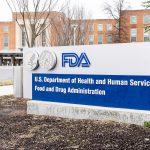
This Valentine’s Day, are you ready for something real or still playing the field? New research suggests your friends probably share similar notions about your readiness for lasting love. Researchers at Michigan State University in East Lansing tracked data on nearly 800 young adults embedded in friend groups. Participants answered questions about their own readiness for a relationship, how ready they thought their various friends were, and each friend’s “attachment style.” Attachment styles can be secure or insecure, the researchers explained. Someone with an insecure attachment style typically has higher levels of anxiety and/or avoidance. According to the study, friends tended to agree as to whether a particular member of the group was ready for a solid relationship or not. If a friend wasn’t thought to be ready, they were often perceived to have an insecure attachment style. “Friendships affect so many parts of our life — not just our health and happiness, but also our romantic prospects. Friends can constrain or facilitate who we date. They can also help our romantic relationships flourish or subtly and not-so-subtly undermine them,” study co-author William Chopik, associate professor of psychology at the university, said. He believes that friends’ “judgments of readiness likely explain all sorts of reasons why friends help and hurt our chances of finding love.” Chopik and co-author Hyewon Yang hope the study… read on > read on >


















